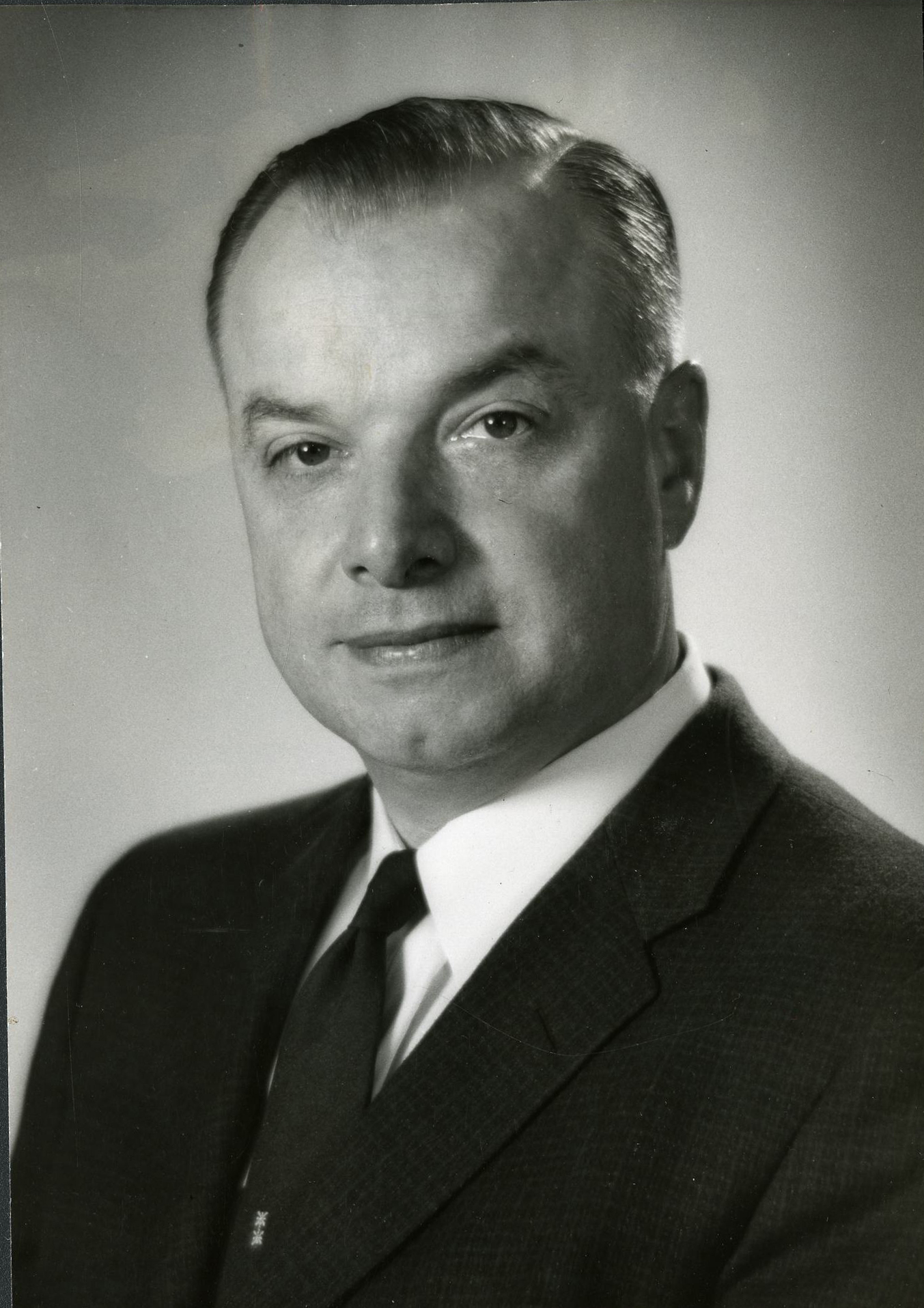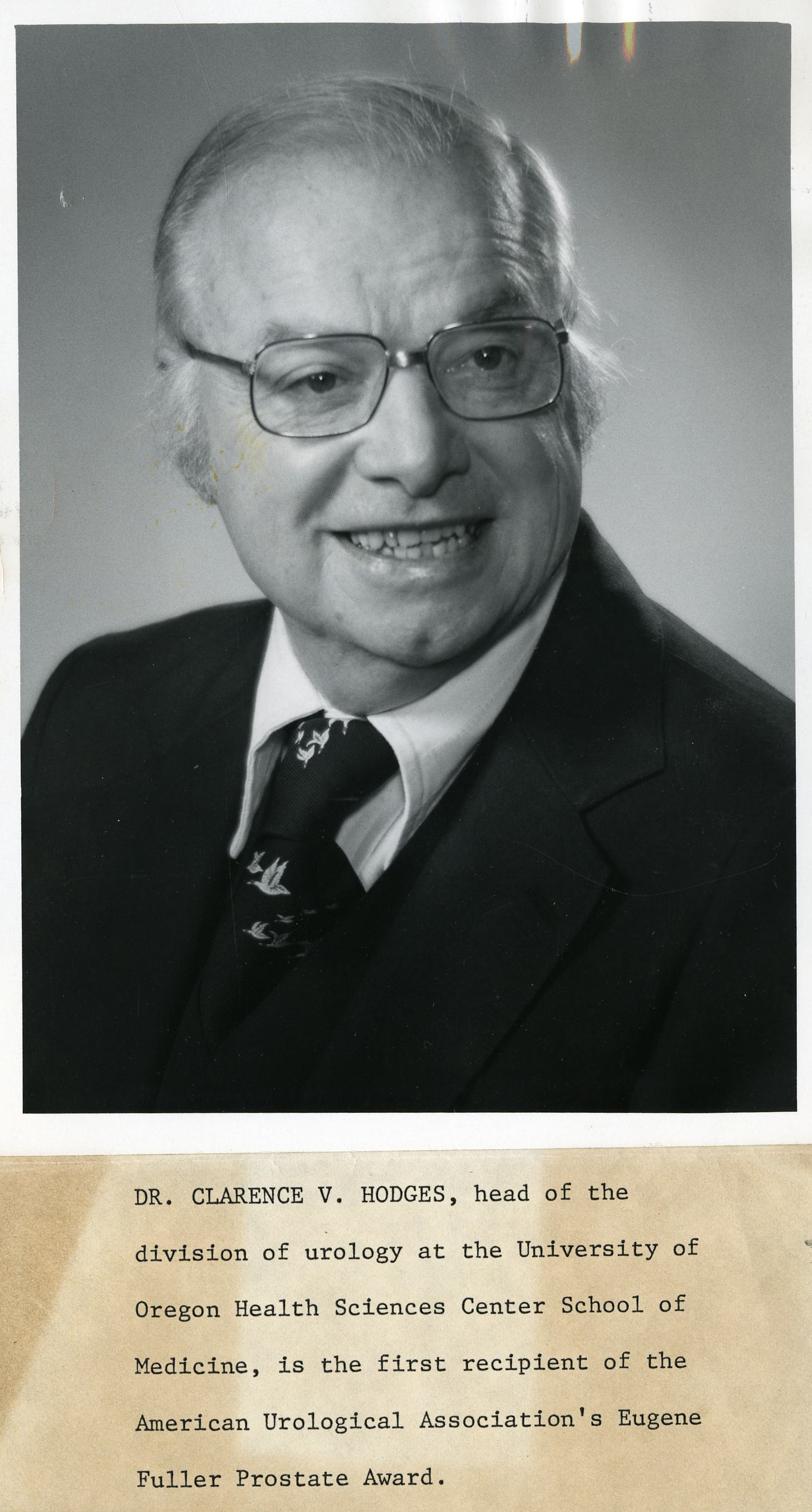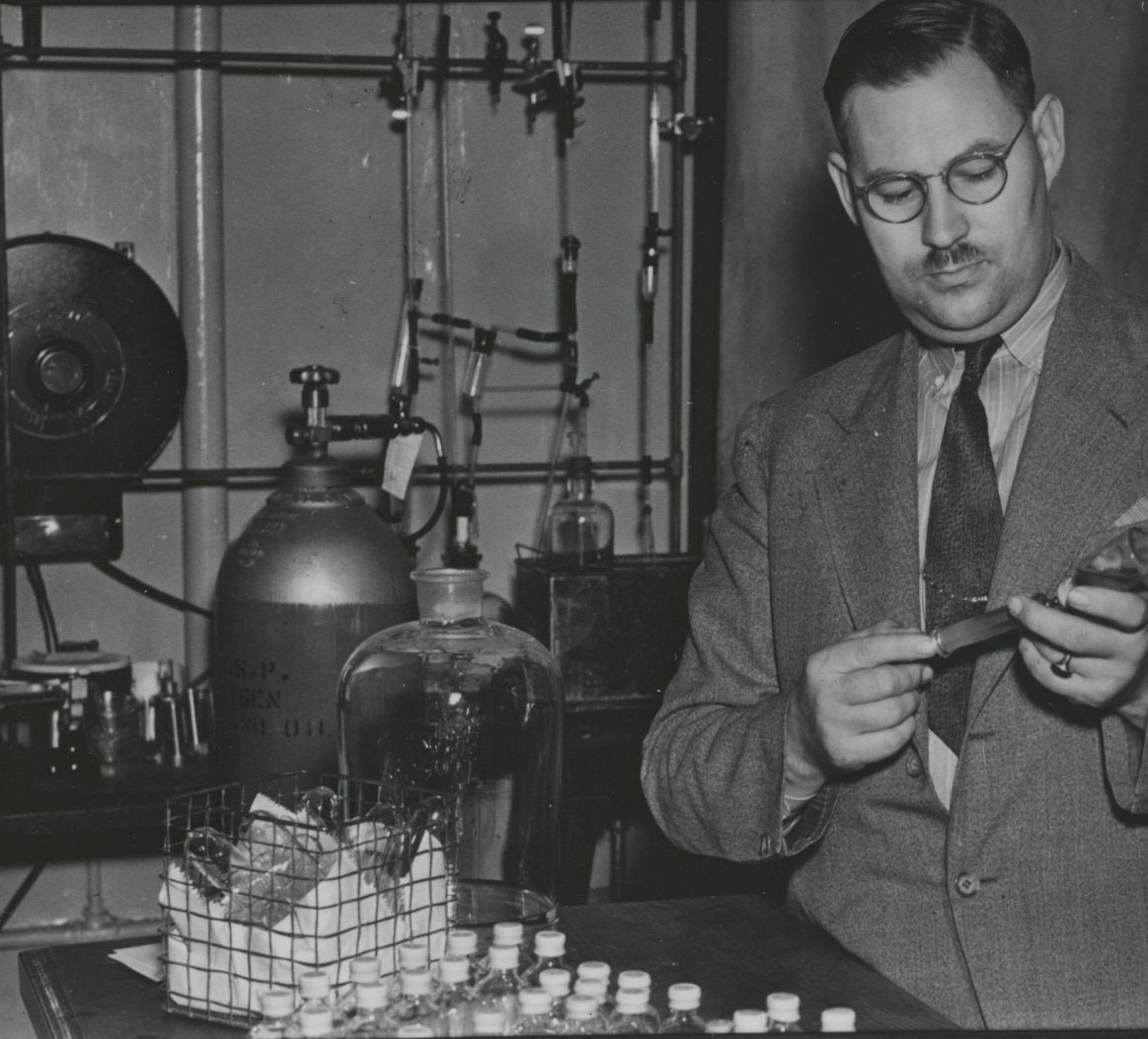Clarence V. Hodges was a member of what some have called "The Greatest Generation." Part of the research team that discovered the relationship of hormones to prostate cancer, he pioneered the treatment of end-stage kidney disease by transplantation, the treatment of urologic cancers, and the training of urologic subspecialists in Oregon.
Born on November 11, 1914, Hodges grew up in Lead, South Dakota, where his father was a physician. After graduating from high school in 1931, he worked for the Homestake Mining Company, one of the largest gold producers in the United States, first on the surface in the electrical department and then in the mine. He entered Iowa State University in 1933 as an engineering student but soon changed his major to pre-med. In 1936, he entered medical school at the University of Chicago, where he worked in the laboratory of Charles Huggins, whose work on prostate cancer won him a Nobel Prize in 1966. Hodges completed medical school in 1940 and remained at the University of Chicago for his internship.
After completing his internship, Hodges went directly into the U.S. Army, where he was trained to be a flight surgeon. Assigned to the Eighth Air Force and attached to the 96th Heavy Bomber Group, he received the Air Medal for flying on thirteen missions over occupied France, Germany, Italy, Russia, and North Africa.
Returning to Chicago after the war, Hodges trained in urology at the University of Chicago, Ancker Hospital in St. Paul, Minnesota, and Johns Hopkins University in Baltimore. He moved to Oregon in 1948 as the first full-time chief of the Division of Urology at the University of Oregon Medical School in Portland, a position he held until 1979.
During his thirty-one years in Oregon, Hodges trained sixty-three urologists. In 1959, he and two other doctors—J.E. Dunphy and Joseph E. Murray (who would win the Nobel Prize in 1990)—performed the first successful kidney transplant west of the Rocky Mountains at University Hospital in Portland. Hodges continued his research in prostate cancer and was awarded the Eugene Fuller Award in 1977 for this work.
In 1981, Hodges was elected into membership of the Johns Hopkins Society of Scholars; he received the Barringer Medal from the American Association of Genitourinary Surgeons two years later. Hodges was president of the Western Urologic Forum (1962), the Western Section of the American Urological Association (1974), the Clinical Society of Genitourinary Surgeons (1978-1979), and the Society of University Urologists (1979-1980).
On his retirement from the Oregon Health Sciences Center in 1979, Hodges was named chair of urology at the John Burns School of Medicine at the University of Hawaii, a position he held for three years. He practiced urology in Hawaii until he retired in 1988. Hodges died on March 6, 2001, at the age of eighty-six.
-
![]()
Clarence Hodges, 1964.
Courtesy Oregon Hist. Soc. Research Lib.
-
![]()
Clarence Hodges, 1977.
Courtesy Oregon Hist. Soc. Research Lib.
Related Entries
-
![Edwin E. Osgood (1899-1969)]()
Edwin E. Osgood (1899-1969)
A caring clinician, careful researcher, and inspirational teacher, Edwi…
Map This on the Oregon History WayFinder
The Oregon History Wayfinder is an interactive map that identifies significant places, people, and events in Oregon history.
Further Reading
Oregon Health and Sciences University. "OHSU's Kidney Transplant Program Celebrates its 40th Anniversary."



